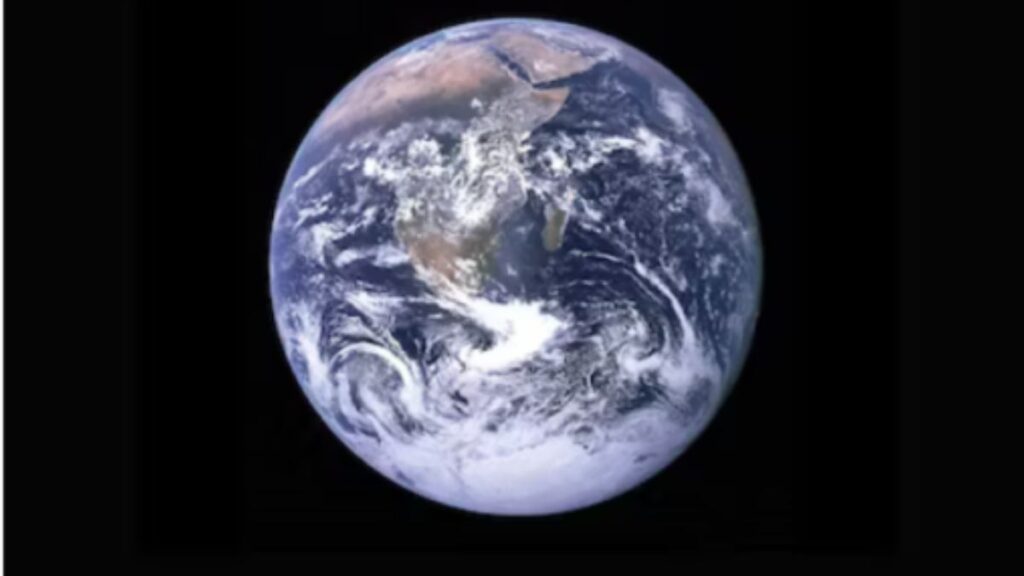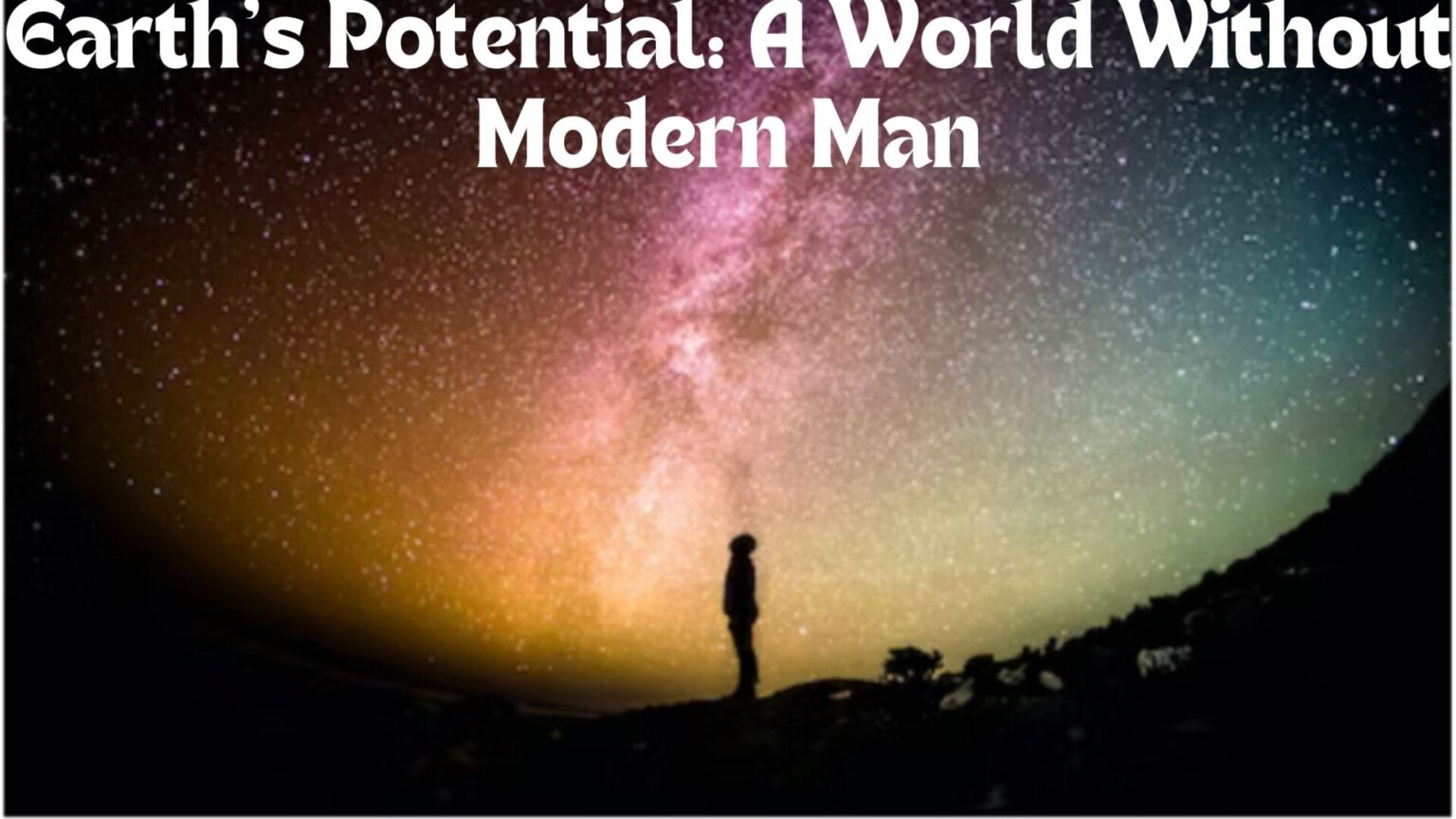Introduction
Unraveling Earth’s Potential: A World Without Modern Man

Imagine a world untouched by the influence of modern humanity, where nature reigns supreme, and ecosystems thrive in perfect harmony. “Unraveling Earth’s Potential: A World Without Modern Man” takes you on a journey through time, exploring the hypothetical scenario of a planet where modern civilization never existed. This thought-provoking article delves into the profound implications such a world would have on the environment, wildlife, and the overall balance of nature.
What are the profound implications on the environment, wildlife, and the overall balance of nature in a world as described in this thought-provoking article?
- Nature’s Resilient Reclamation
In this alternate reality, without the rise of modern civilization, urban landscapes, industrialization, and deforestation would not have taken their toll on the environment. Instead, vast areas of land would still be covered in pristine forests, and untouched wilderness would flourish. Nature’s resilience would be evident, with ecosystems regaining their balance as wildlife roams freely.
- Impact on Biodiversity
The absence of modern man would mean no overhunting, poaching, or habitat destruction. As a result, endangered species would have a better chance of survival, and biodiversity would thrive. The delicate web of life would remain intact, with each species playing its unique role in the ecosystem.
- Climate Change and Pollution
The Industrial Revolution, followed by modern industrial practices, has significantly contributed to climate change and pollution. In a world without modern man’s emissions and pollutants, the atmosphere would likely be less burdened, and the impact of climate change might be less severe.
- Uninterrupted Natural Cycles
Human activities, such as deforestation and urbanization, often disrupt natural cycles like water flow and nutrient distribution. In a world without such interference, these cycles would function uninterrupted, benefiting both flora and fauna.
- Alternative Dominant Species
Without the rise of Homo sapiens, other species might have emerged as the dominant intelligent beings on Earth. Speculation about alternative dominant species opens up intriguing possibilities for the development of ecosystems and the planet’s future trajectory.
- The Butterfly Effect
Considering the intricate interconnectedness of Earth’s ecosystems, the absence of modern humanity would undoubtedly lead to a butterfly effect, altering numerous aspects of the planet’s history and development. Understanding these potential changes offers valuable insights into the significance of preserving the delicate balance of our current world.
- Lessons for the Future
Contemplating a world without modern man can offer essential lessons for the present and the future. Recognizing the impact of human activities on the environment encourages us to be more mindful of our actions, fostering a greater sense of responsibility toward preserving Earth’s natural wonders.
Is the increasing population also a factor due to which life on earth is being affected?
Yes, the increasing population is indeed a significant factor that affects life on Earth in several ways:

- Resource Depletion: As the global population grows, there is an increased demand for natural resources such as water, food, land, and energy. Overconsumption and resource depletion can lead to environmental degradation and disrupt ecological balance.
- Habitat Destruction: The expansion of human settlements and infrastructure often leads to the destruction of natural habitats, resulting in loss of biodiversity and threatening the survival of various plant and animal species.
- Pollution and Waste: With a larger population, there is more waste generation and pollution. Improper disposal of waste and increased use of single-use plastics can lead to pollution of land, water bodies, and the atmosphere.
- Climate Change: The growing population contributes to increased greenhouse gas emissions, primarily through industrial activities, transportation, and energy consumption. This leads to global warming and climate change, with adverse effects on ecosystems and weather patterns.
- Overfishing and Overhunting: A larger population increases the demand for food, including fish and wildlife products. Overfishing and overhunting can deplete marine and terrestrial populations, leading to imbalances in ecosystems.
- Deforestation: The need for more land to accommodate the growing population results in deforestation, leading to habitat loss, reduced carbon sequestration, and increased greenhouse gas emissions.
- Water Scarcity: As the population increases, the demand for freshwater also rises. Many regions already face water scarcity, and the situation is likely to worsen with population growth.
- Loss of Biodiversity: Human activities driven by population growth, such as urbanization and agriculture expansion, can lead to the loss of biodiversity as natural habitats are converted into human-dominated landscapes.
To address these challenges, sustainable population management, along with responsible and equitable resource consumption, is crucial. Additionally, promoting education and access to family planning services can help reduce population growth rates and ease the pressure on the environment. It’s essential to find a balance between population growth and environmental sustainability to ensure a better future for both humanity and the planet.
What measures should we take for the development of modern man and how to save the earth so that it does not become devoid of modern man?
Ensuring the development of modern humanity while preserving the Earth requires a balanced and sustainable approach. Here are some measures that can be taken to achieve this goal:

- Promote Sustainable Development: Emphasize sustainable practices in all aspects of human development, including economic, social, and environmental dimensions. This involves promoting renewable energy sources, sustainable agriculture, and responsible consumption to minimize the negative impact on the planet.
- Environmental Conservation: Implement strict measures for protecting natural habitats, wildlife, and biodiversity. Create and enforce laws to prevent deforestation, habitat destruction, and illegal wildlife trade. Establish protected areas and national parks to preserve critical ecosystems.
- Reduce Greenhouse Gas Emissions: Address climate change by adopting green technologies, transitioning to cleaner energy sources, and promoting energy efficiency. Encourage international cooperation to reduce greenhouse gas emissions on a global scale.
- Encourage Responsible Consumption: Educate and raise awareness about the importance of responsible consumption among individuals and businesses. Encourage the use of eco-friendly products, recycling, and waste reduction.
- Invest in Education: Promote education on environmental issues, sustainability, and ecological responsibility. By fostering a greater understanding of the Earth’s fragility, people can become more proactive in protecting it.
- Support Renewable Energy: Invest in research and development of renewable energy sources such as solar, wind, and hydroelectric power. Transitioning away from fossil fuels is crucial to mitigating climate change.
- Implement Conservation Policies: Governments and international organizations should collaborate to develop and enforce policies that support conservation efforts and prioritize environmental protection.
- Practice Responsible Tourism: Encourage responsible and sustainable tourism practices to minimize the negative impacts on fragile ecosystems and local communities.
- Preserve Water Resources: Protect and manage water resources efficiently. Implement water-saving technologies and practices to ensure a sustainable supply of fresh water for both humans and nature.
- Support Green Innovation: Invest in technological advancements that promote sustainable development and eco-friendly solutions.
- Promote Ethical Behavior: Encourage ethical behavior and accountability among individuals, businesses, and governments to ensure responsible environmental practices.
- Empower Local Communities: Involve local communities in conservation efforts, respecting their knowledge and traditional practices that contribute to environmental preservation.
By taking these measures, we can work towards the development of modern society while safeguarding the Earth’s resources and maintaining the delicate balance that allows both humanity and nature to thrive.
Conclusion
“Unraveling Earth’s Potential: A World Without Modern Man” allows us to envision an alternative reality that showcases Earth’s incredible ability to regenerate and flourish without the interference of modern civilization. While this thought experiment is purely hypothetical, it serves as a poignant reminder of our responsibility to protect the environment and conserve biodiversity. By learning from this exploration, we can take steps to create a sustainable future, where the wonders of nature can thrive, and the delicate balance of our planet remains intact for generations to come.






